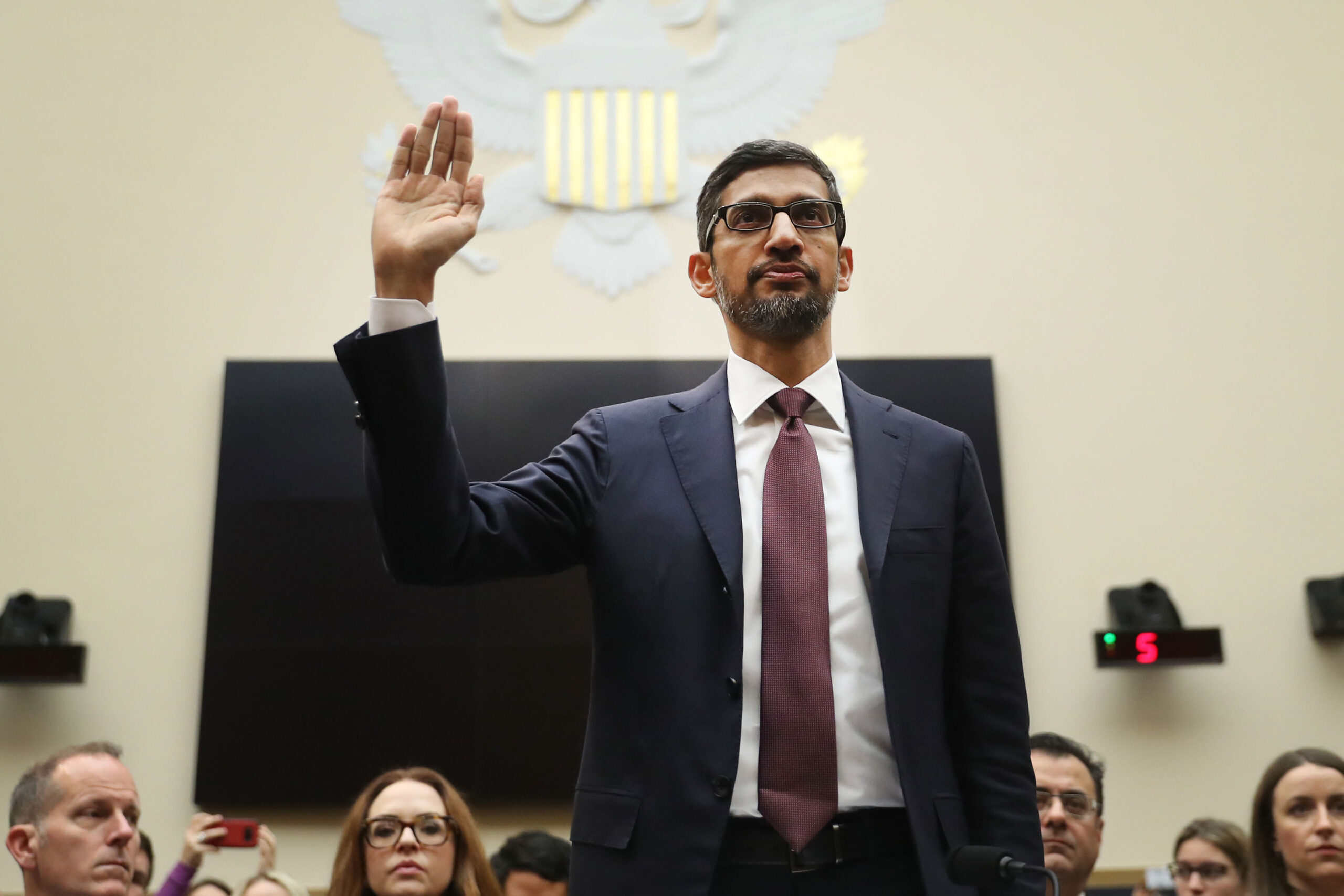Sundar Pichai, chief executive officer of Google, is sworn in during a House Judiciary Committee hearing in Washington, D.C., U.S., on Tuesday, Dec. 11, 2018.
Andrew Harrer | Bloomberg | Getty Images
While Twitter and Facebook publicly quarrel about whether they should keep political ads on their sites, one big voice has been noticeably absent from the debate: Google.
Google parent Alphabet gets 84% of its revenue from advertising, with an increasing amount coming through its YouTube video platform. As of last month, YouTube was stepping up its efforts to lure political ad dollars away from television and Facebook with new tools for advertisers.
But we didn’t hear a peep from Google this week, even as Jack Dorsey announced that Twitter would ban political advertisements, swiping at Facebook’s Mark Zuckerberg, who said on his company’s earnings call that it’s not the job of a private enterprise to “censor politicians and the news.” Facebook’s controversial ads policy was a major point of contention during Zuckerberg’s recent testimony to Congress.
Despite its size and influence, Google has managed to escape the same level of scrutiny. Consider the recent attack on Facebook for running an ad from Trump’s reelection campaign containing false allegations about Joe Biden’s activity in Ukraine. YouTube and Twitter also ran the ad but dodged the heavy criticism.
A Google spokesperson declined to comment for this story.
One big difference with Google is that President Trump and other politicians are less visible there than on Facebook or Twitter, where they send constant messages — true or not — to their supporters and followers. Those sites are driven by news feeds that cater to political groups who can mask their paid messages and make them appear to be actual news.
Facebook co-founder and CEO Mark Zuckerberg testifies before the House Financial Services Committee in the Rayburn House Office Building on Capitol Hill October 23, 2019 in Washington, DC.
Chip Somodevilla | Getty Images News | Getty Images
But just because politicians aren’t talking as much about Google, that doesn’t mean they’re not spending on the site. The Trump Make America Great Again Committee is the largest political advertiser on Google, having paid $8.23 million, according to the company. Second is the Senate Leadership Fund at $5.12 million, followed by the Congressional Leadership Fund at $4.15 million. Both groups support Republicans.
In total, Google has received at least $121.9 million for 167,901 political ads in the U.S. since May 31, 2018, according to the company’s “transparency report” on its website. Those figures are practically immaterial for a company that just generated $33.9 billion in ad revenue in the latest quarter.
The numbers are also small at Facebook and Twitter. Zuckerberg said this week that ads from politicians will be less than 0.5% of his company’s revenue next year. Twitter Chief Financial Officer Ned Segal said political ad spend for the 2018 U.S. midterm…
https://www.cnbc.com/2019/11/03/google-is-silent-on-political-ads-amid-facebook-twitter-spat.html















